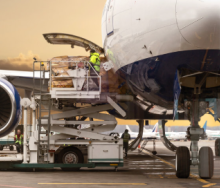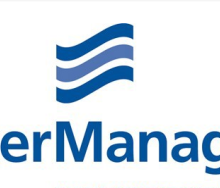In some developing countries women are leading the way to establish qualifications in the transport sector, says Jon Harris, International Education Strategy and Business Development Lead of the United Kingdom-based multi-modal Chartered Institute of Logistics and Transport (CILT).
CILT brings together the best logistics and transport minds on a voluntary basis to advise it regarding best practice in the constantly changing world of transport, logistics and supply chain. It calls on inputs from the private sector, government (even the military), education institutions and relevant like-minded bodies, to formulate its guidelines.
Harris was the guest of the local Chartered Institute of Logistics and Transport: South Africa (CILTSA) at its graduation ceremony for the CILTSA Candidacy Programme for women. Funded by the Transport Education and Training Authority (TETA), 13 local ladies were awarded the internationally recognised CILT Diploma in Logistics and Transport, after completing a study, practical and mentorship programme. The graduation was hosted at the 16th Annual Smart Procurement World Indaba and Exhibition at Gallagher Convention Centre in Midrand last week.
Harris told Freight News that theIvory Coast, Gabon and some other African countries had a formalised CILT presence in the wake of women taking the lead in transport education and continuing professional development such as that provided by CILT.
“In the developing world, it is noticeable, so that will include countries such as Pakistan, India, Sri Lanka and Turkey, where women participation leads to formalisation of our presence. What we have also developed is a set of guidelines for mentors and mentees.
“We were fortunate to support a bid for a commercial training programme in South Africa called Women Inspiring Women to Lead in Transport last year. The women who choose transport as a profession can use our programme to further make themselves competent to take them to any level in the logistics, transport and supply chain industries.
“We have also been fortunate to twin with organisations such as TETA, which has enabled us to get around challenges with meeting local education requirements imposed by government through its qualifications curricula and accreditation,” explained Harris.
Technically, the logistics, transport and supply chain industries are constantly undergoing changes. From the controllers and trainers to drivers, there is a need for embracing any changes within a tolerance of the local driving community to do so. Which countries can adopt more paperless documentation for example is dependent upon the IT level of the whole country and the keenness of the individual driver to move to paperless. If paperless is simple and faster, to make the driver’s job easier and faster, it will be acceptable. If it is not, due to non-compatibility of systems – particularly in cross-border transportation – it will not be as readily accepted.
“We do not impose a one-size-fits-all approach to our certification, so a mentorship programme is key to us blending best practice guidelines for logistics and transport with a tolerance of local culture as well. South Africa has one of the best mentorship programmes – it was the largest worldwide this past year. What was celebrated here today is the rewarding of the women who have been exposed to that practice,” said Harris.













